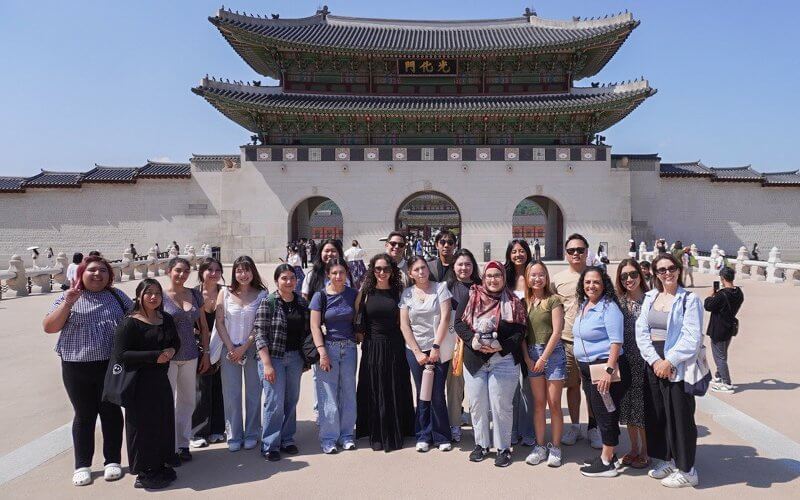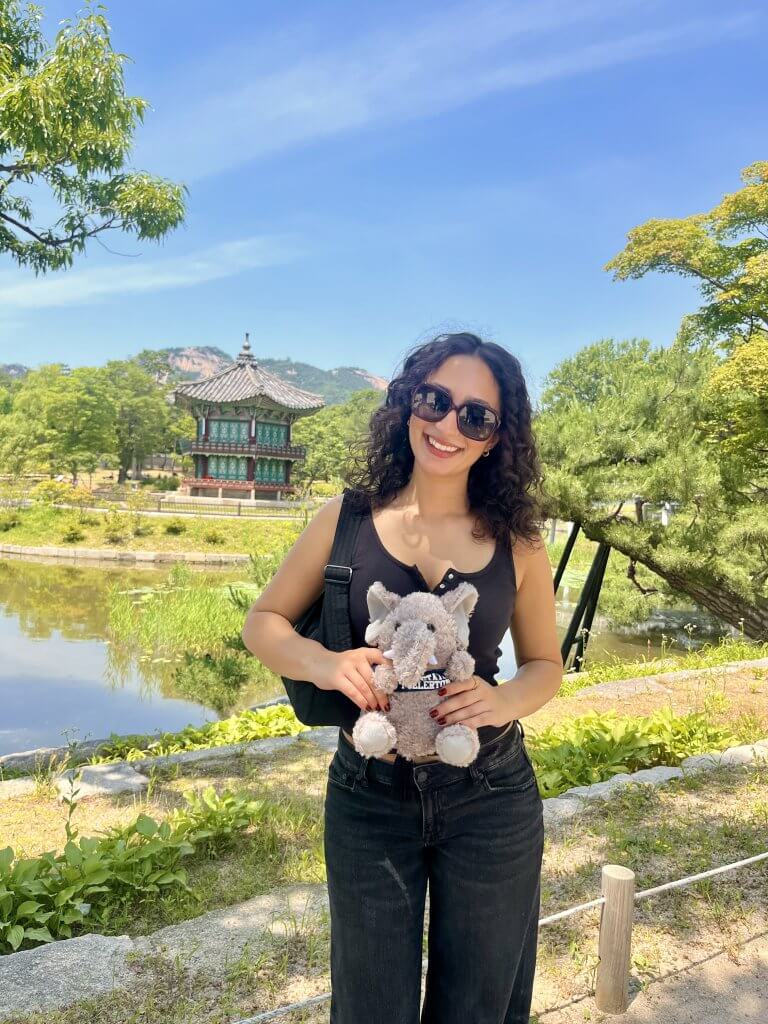
A summer trip to Seoul, South Korea, offered a group of Cal State Fullerton students the chance to see ancient temples and historical palaces, but it also gave them a firsthand view of modern-day Koreans’ relationship to their country’s past conflicts.
American Studies Professor Susie Woo took 18 students to Seoul to learn about Korean history and culture, and about the sense of national identity in the U.S. and in Korea.
They visited historical spots, including the ancient capital Gyeongju, which houses archeological sites and a Buddhist temple complex that’s been in use since the 8th century.
Walking in the footsteps of kings in a 600-year-old palace “lends itself to a much deeper understanding of the materials that they’re learning in class,” Woo said.
The group also visited the DMZ, the 2.5-mile-wide, heavily fortified border that has separated North and South Korea since 1953. Students had the opportunity to speak with a woman who defected from the north but doesn’t know what happened to her mother and sister, who were captured in their escape attempt.

In South Korea, people still feel the reverberations of decades of Japanese occupation of the region, followed by the Korean War, said Sophia Darvish ’25 (B.A. criminal justice).
Seoul’s subway stations were designed to double as bomb shelters, and a tour guide explained a common assumption that military conflict between North and South Korea is inevitable.
For Darvish, “It was really grounding to learn that history and see the repercussions of it.”
Woo said some students noticed cultural differences such as a societal emphasis on respect for elders, education and the communal good rather than individualism. But they also recognized downsides to the “bali bali” (translated as “hurry hurry”) culture in education and work.
For child and adolescent studies major Reem Owda, it was illuminating to learn about the role of “hagwons” (private academies for specialized studies or college entrance exam prep) in Korea’s competitive environment.
“It helped me understand more about the psyche of Korean children and how a country can affect generations of children,” said Owda, who hopes to become a child psychologist or counselor.
She had long hoped to study abroad but assumed it would be too expensive. Then she learned CSUF was paying for the flights and accommodations.
Of CSUF’s 20 study abroad programs last summer, nearly all received financial support from the university or a fund that comes from student fees; nine of the programs covered all costs but tuition and fees, according to CSUF Study Abroad and Global Engagement.
“This is a dream learning opportunity,” Owda said. “I never thought the school would be so generous in making sure those opportunities were open to all students.”
Woo’s students also learned to navigate Seoul’s public transit and cooked a multi-course Korean meal — activities that were key to one learning objective Woo hoped would serve students long after they graduate.
“I wanted to help build their confidence and understanding of what it means to be a global citizen and what it means to travel in a different country,” Woo said.
Although the visit to Korea was the first time some of her students had been outside the U.S., she said, “there were many students at the end who said, ‘I feel like I could go anywhere.’”